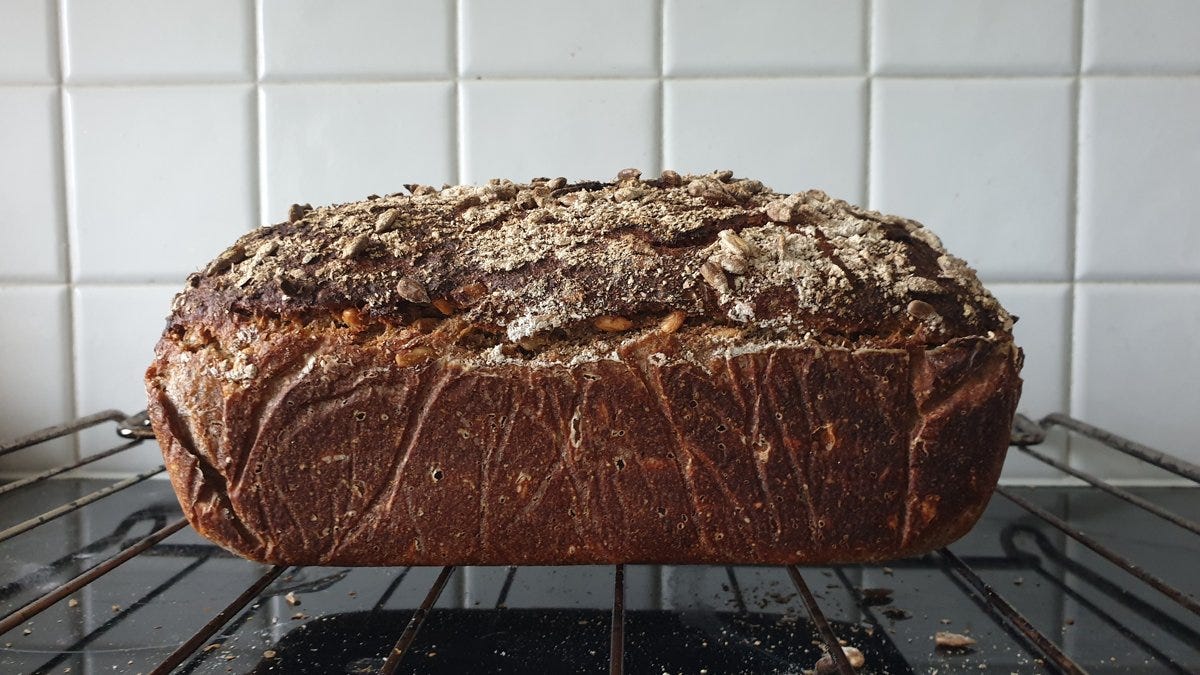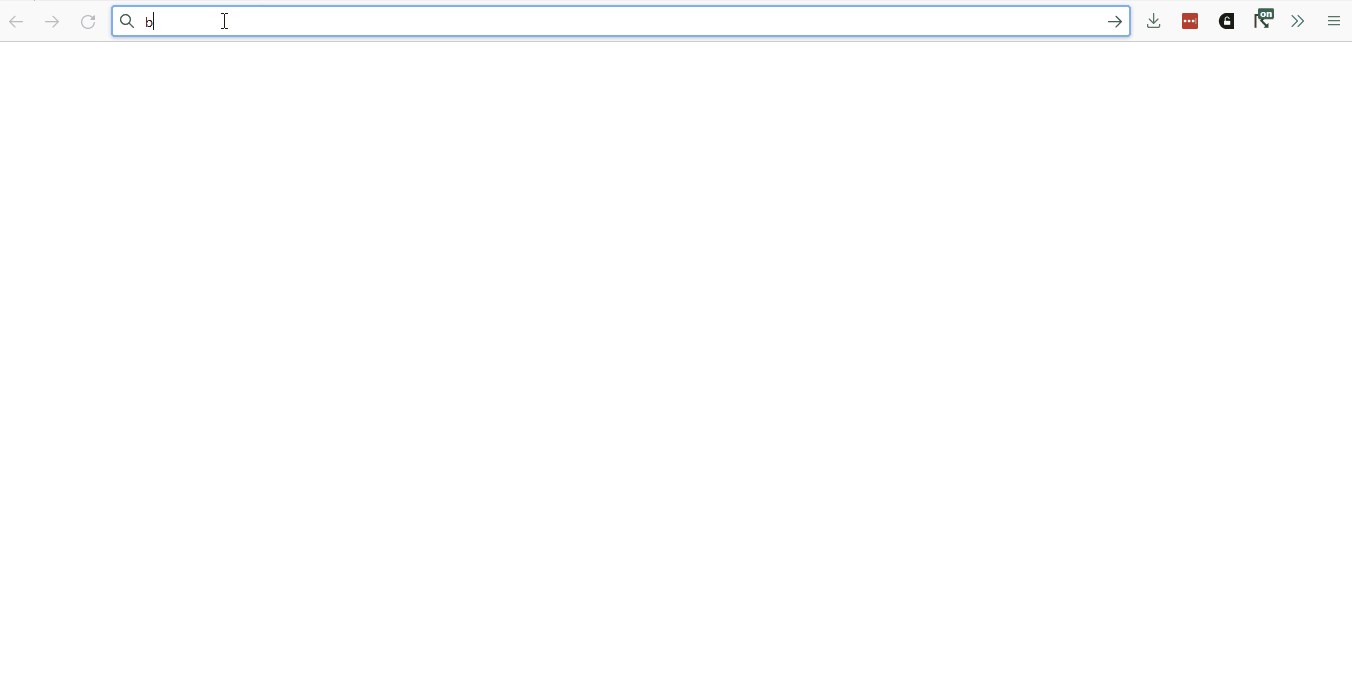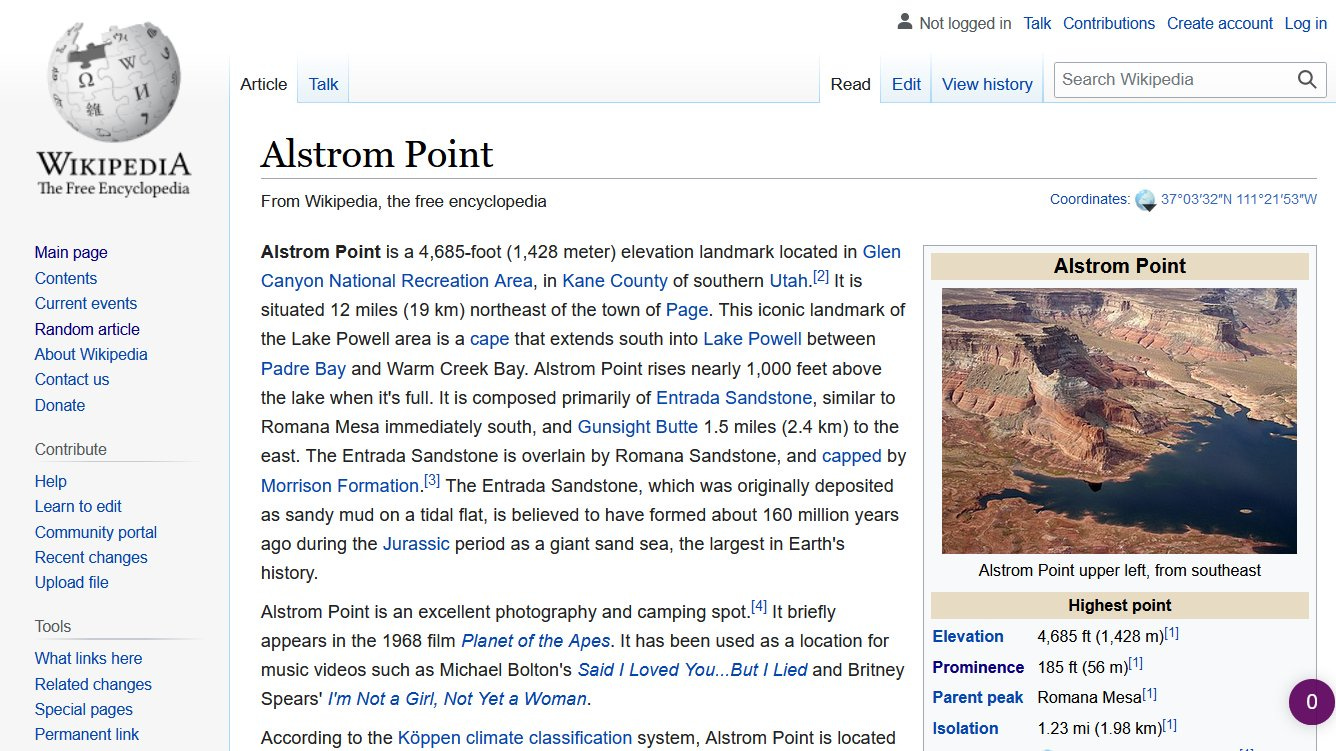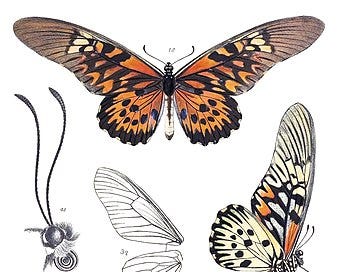Woolly Mammoths & Butterfly Wings
Something frivolous and life-changing about how we can use redirects to break the palliative cycle of internet addiction and transform our most spirit-crushing micro-habits into a very silly game
Happy Yuletide!
I did NOT realise that Yule was a pre-Christian Norse winter festival, nor that the Yule Father was none other than the beardy Norse god Odin, who, now and then, when the portents were gloomy enough, lead the Wild Hunt, Raging Host or Devil’s Dandy Dogs, a terrifying hoard of tortured souls, unchristened babies, ghostly hounds, Valkyries and fairy elves.
Why were we never taught that as kids? Beats Santa with his creepy ‘naughty or nice’ surveillance tactics.
Anyway!

For those of you new to these pages, hello 👋 My name is David and I’m a writer, outdoor instructor and cyclist-at-large with Thighs of Steel.
I write stories that help you and me understand the world (and ourselves) a little better.
This week’s story took a sharp left turn yesterday.
I thought I was writing something powerful about Nonviolent Communication — and then all of a sudden it became something frivolous and life-changing about how we can use browser redirects to break the palliative cycle of internet addiction and transform our most spirit-crushing micro-habits into a very silly game.
Welcome to edition 340.
(Don’t worry, empathy fans, Nonviolent Communication to follow in the New Year…)
Redirect & Randomise
This is so much fun. Watch what happens when I attempt to mindlessly browse the BBC Sport website yesterday 👇

Over the last month, I’ve been mulling restlessly over my consumption of sports news.
As you know, I am a huge fan of No News Is Good News.
But I also have the misfortune to be a fan of certain sports — or, rather, I find myself seeking out sports news as a sort of soothing medication for certain twenty-first century maladies of the soul for which a lasting cure would risk rupturing the fabric of my fragile ego.
The last month, then, has been ripe for medication.
Vacant Escapism
My dissatisfaction with sports-soothing was particularly acute when I was cycling from Edinburgh to Inverness a few weeks ago (stories here and here) — especially as the icy weather and early darkness would lure us indoors, often into places where the football was showing on screens large and small.
I found these ghostly attractions hard to resist and the vacant escapism of watching other people literally play out their lives in the desert heat of Qatari sports grounds created in me a strong sense of cognitive dissonance.
Subsuming myself to a screen is the very opposite of the connections of propinquity that I say I most value, and those I say I seek, most especially when I travel.
Either I’m a useless hypocrite or else nnnguhhhhhh?
What Cost Sports-Soothing?
I didn’t know what to do with this uncomfortable cognitive dissonance until, early this morning, at home in bed, I found myself switching on the radio to catch the last rites of the England men’s cricket team winning in Pakistan.
I could have been night-dreaming, day-dreaming, or even just listening to the whine of tinnitus in my left ear canal.
Instead I was lying in the dark, listening to someone else describe what they’d seen someone else do on a patch of lawn 6180km away.
Once I’d finished revelling in the statistical playground that was England’s ‘historic’ (what does that even mean?!) victory, I was sobered by an uninvited soul-searcher:
What opportunity cost am I absent-mindedly paying for my addiction to sports-soothing?
I’m sure you’re familiar with the idea of opportunity costs — they’re the things you could have done instead of doing the thing that you went and did.
When you start thinking about opportunity costs, it can rapidly spiral you into needing-a-lie-down-time.
Like: I studied Egyptology at university AT THE COST OF EVERY SINGLE OTHER DISCIPLINE, INTEREST, VOCATION, CAREER and, indeed, EXISTENCE.
Gosh. Thanks, Dave. Massive FOMO. Just what I needed more of.
Woolly Mammoths & Butterfly Wings
The way I see it, there are two species of opportunity cost that arise from our life choices.
There are the woolly mammoth costs, like not choosing a degree in radiology, fine arts or Xhosa and the careers thereby closed off forever.
Psychologically, the woolly mammoths are actually fairly manageable. They are so big that we tend to commit one way or another: interminable regret or indignant justification.
And, being egotistical fipple-flute humans, we tend to go for the latter.
Even if the decision is fairly arbitrary (I was always more Indiana Jones than Star Wars as a kid), it’s our decision so we don’t usually find it too hard to make peace with our chosen path.
Like the actual woolly mammoths, the psychological pain associated with massive and obvious opportunity costs tend to go extinct pretty quick. Definitely within 800,000 years, anyway.
But our daily lives are brimming with minute decisions that bear almost invisible opportunity costs that take their power from accumulation: our habitual opportunity costs, the butterfly wings that become the hurricane.
And our habitual opportunity costs aren’t just any common or garden butterfly.

They are none other than Papilio antimachus, the African giant swallowtail, which oozes a deadly poison called ouabain that kills by cardiac arrest.
Despite being smaller than a chequebook, these are the ones you need to be worrying about.
Masked in a cloak of apparent insignificance, we don’t tend to notice the cumulative cost of our chequebook-sized habits until we look over our end-of-life accounts and marvel at how much we’ve spent.
Whereas woolly mammoth costs loom large and fade rapidly, butterfly wing costs loom almost invisibly small, but simply won’t stop growing, dammit.
What’s the opportunity cost of choosing to take the bus to work instead of cycling?
Well, maybe not much on Day One, but come Day Four Thousand And Forty Seven, you might realise that you are still not a confident cyclist, not able to fix a puncture, not as fit as you once were, not as stoic in a rain shower and maybe not even in such a good place psychologically.
Oops.
103 Lost Moments
Picking a random week in the past month, from my web history I can see that I scrolled through 103 unique BBC Sport stories.
That’s fourteen stories a day and doesn’t capture the number of times I refreshed the headlines, only the number of times I clicked through.
What were the opportunity costs for each of those 103 stories? It’s really hard to say without context.
So here’s context: I lied. That wasn’t a random week in the past month: that was the week I cycled from Edinburgh to Inverness.
Now what was the opportunity cost of those 103 disconnected moments?
Those moments when I could have been watching, listening, speaking, breathing, sharing and connecting with the landscape, society and stories around me, I was instead reading up on the ‘frightening depth’ (what does that even mean?!) of Gareth Southgate’s squad.
Fear & Soothing In Las Dave-gas
Now. I don’t want to beat myself up too much here, but I do think it’s worth plunging my Marigolded hands into the dirty washing up bowl of my mind, just once, to see if I can scoop out the gunk that’s been blocking up the drain of my mind and triggering my mindless sports-soothing.
If I can locate the trigger behind all the tabs, then I might be able to soothe those triggers in a way that doesn’t leave me feeling disconnected and all cognitive dissonancey.
Firstly, let’s get this myth out of the way: I’m certainly not triggered by a need for information when I click over to BBC Sport.
And this probably goes for you too, whatever your medication be. We seek information in a specific and timely way, we don’t go browsing for it.
Ah! But what’s this, dredged up from the deep, mottled with mould and crawling with lice?
Two triggers that get right to the base of my ganglia: fear and reward.
Fear
This trigger is a fear of what might happen if I permit my brain a moment without focus.
It’s not boredom. It’s not yet boredom.
It’s a state of pre-boredom. My brain flags the end of one activity and rapidly steps in with another, even if vacuous, to fill the void.
Over the past thirty years of maturation, my brain has somehow morphed into the encephalous version of an early Victorian preacher declaiming hellfire and damnation, for an idle mind is the devil’s workshop!
So I scroll over to BBC Sport and soothe my fraught neurons with talk of how French goalkeeper Hugo Lloris texted England’s Harry Kane after the latter struck a penalty kick, if anything, a little too well.
Reward
A despised manager gets the sack, a rival loses heavily to a lower league team, a goalkeeper in amateur football scores with a goal kick.
Once in a month, the one-armed bandit shells out and a deal is struck: my mind’s association between BBC Sport and pleasure is stuck.
The next time I finish writing a paragraph, I reward myself with the BBC’s analysis of Ben Doak’s career prospects.
The outcome when I satisfy triggers of both fear and reward is a soothing of the mind. Rather than staying with the end of a task, I soothe my agitation with sport.
A Wave Of Brilliance
If my BBC Sport habit isn’t working for me, then what can I replace it with?
Nothing would be a good option.
Doing nothing, I would allow my brain the opportunity to rest, grow bored, and perhaps, in time, spit out a wave of brilliance.
However: it’s very difficult to replace a habit of doing something with a habit of doing nothing. That’s why they call them Zen Masters and not Zen Easypeasers.
That’s also why I’ve struggled with using distraction-taming apps like Freedom or Unpluq: they simply block your access to such and such a website.
They don’t offer any alternative, except sometimes a homily about taking a moment to breathe or some other patronising guff that doesn’t come close to meeting my desperate underlying need for soothing.
If I can’t have nothing, then what I need is something that promotes connection through novelty, something that rewards and soothes, and something that, through its randomness, might INSPIRE something in me instead of leaving me with the uneasy knowledge that Ronnie O’Sullivan compared his snooker opponent to Mr Bean.
Then, in a flash, I realised that there must be a way of programming my web browser to redirect every BBC Sport page to the Wikipedia Random Article page!
Within seconds, I’d found the Redirector add-on for Firefox and my sport-soothing days were over.
Ironic, then, that Wikipedians, like me, seem to have an overwhelming obsession with sports…
Sportipedia
There are 6,590,624 articles in the English Wikipedia, about half of which are stubs containing nothing more than a couple of sentences.
According to a 2016 survey of 1,000 random articles, 16 percent of articles are about sports. According to a random survey I just carried out, it’s now more like 25 percent.
But at least I now know of the death last year of Poerio Mascella, an Italian goalkeeper who played for Serie D side Pistoiese during their glory years of the 1970s.
After three days, my habit of mindlessly browsing BBC Sport, whether for fear or reward, has already withered.
I wouldn’t say that I have found a Zen-like state of peace with my relationship to my web browser, but I do now find myself typing in the address of bbc.co.uk/sport with glee.
Ahh, there!
Now this story is written, I can spin the wheel and claim my reward…

~
More inspiration for random redirects:
Wiktionary in any language (appropriately enough, my first English trial took me to bah humbug)
Wikiversity (seems to be mostly course outlines, mind)
Bonus: If you’re ever in need of emergency randomness, hit Alt-Shift+X from inside Wikipedia.
What d’ya reckon? Worth a share this week?
Cheers! 🙌
Days of Adventure 2022: 127 (-1, oops)
🟢🟢🟢🟢🟢🟢🟢🟢🟢🟢🟢🟢🟢🟢🟢🟢🟢🟢🟢🟢🟢🟢🟢🟢🟢🟢🟢🟢🟢🟢🟢🟢🟢🟢🟢🟢🟢🟢🟢🟢🟢🟢🟢🟢🟢🟢🟢🟢🟢🟢🟢🟢🟢🟢🟢🟢🟢🟢🟢🟢🟢🟢🟢🟢🟢🟢🟢🟢🟢🟢🟢🟢🟢🟢🟢🟢🟢🟢🟢🟢🟢🟢🟢🟢🟢🟢🟢🟢🟢🟢🟢🟢🟢🟢🟢🟢🟢🟢🟢🟢🔵🔵🔵🔵🔵🔵🔵🔵🔵🔵🔵🔵🔵🔵🔵🔵🔵🔵🔵🔵🔵🔵🔵🔵🔵🔵🔵
Join The Crew, Get A Book
The stories I write are totally free to read and always have been.
If you’d like to support this regular blend of ‘curiosity, insight, fine writing and infectious sense of adventure’, then become a paying subscriber and I’ll send you a copy of my Days Of Adventure book when it comes out in early 2023.
Heartfelt thanks to Andy, Claire, Tudor, John, Harri, Becky, Illia, Joanna, Maryla, Cass, Georgie, James, Joe, Libby, David, Tessa, JMJ and Geoff 💚💚💚
Remember that you can reply to this email like any other and turn this extended monologue into a proper convo.
Thank you 🙏
That’s it for this week!
Oh, wait, no it’s not — some of you were very keen for blood glucose updates 😂 The rest of you, class dismissed.
Right, now. Following up on last week’s dietary discoveries, this week I have learned that:
I should eat a handful of nuts ten minutes before every meal. The easiest time to implement this is at breakfast — I just pick the almonds out of my museli and eat them first. I guess that method would work with a korma too?
Skipping breakfast is not cool. I had a wild blood glucose spike after breaking a 16 hour fast with my typical low-spike breakfast. It was only one trial, though. Maybe my blood and guts would learn to love intermittent fasting if I stuck to it for a fortnight?
Brisk exercise immediately after eating is great for my bloods and totally fine on my stomach. It doesn’t give me cramps or make me sink to the bottom of the swimming pool, as mysteriously threatened at primary school. Exercise does only seem to suppress the blood glucose response, however. It seems to rebound to high-ish levels once I stop moving. Why’s that, then?
Each lesson only generates more questions.
Such is life.
In the northern hemisphere, summer is officially On. Its. Way. Whatever you’re celebrating over the coming days, let’s celebrate that.
Have a good one and I’ll see you next Friday for our final episode of the year — my now infamous 52 Lessons annual retrospective!
Big love,
dc:



